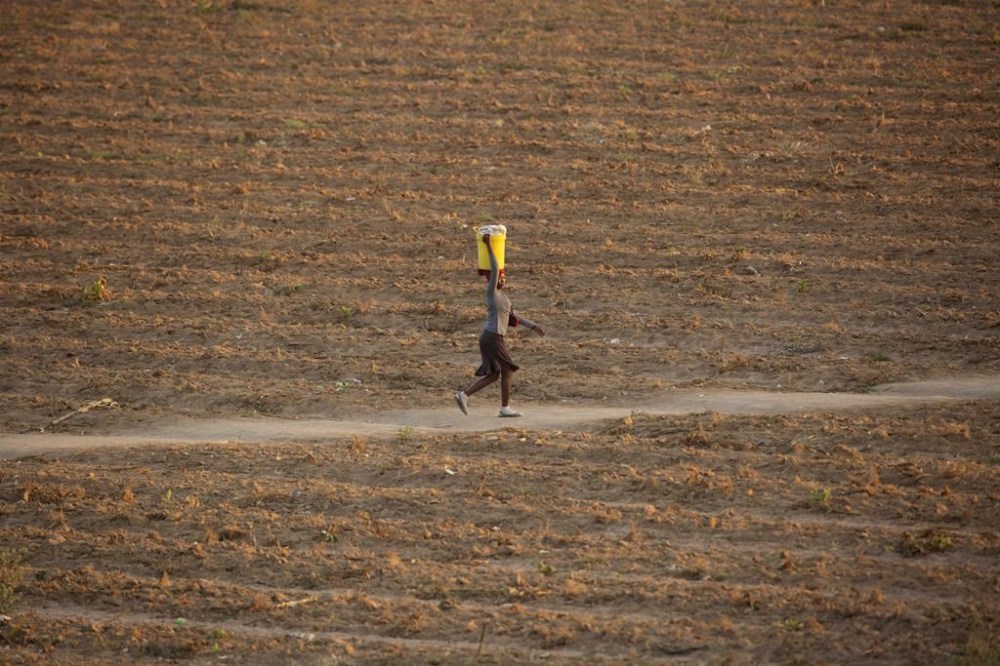UN warns of climate change impact on farms and rural households run by women in poor countries
Advertisement
Read this article for free:
or
Already have an account? Log in here »
To continue reading, please subscribe:
Monthly Digital Subscription
$1 per week for 24 weeks*
- Enjoy unlimited reading on winnipegfreepress.com
- Read the E-Edition, our digital replica newspaper
- Access News Break, our award-winning app
- Play interactive puzzles
*Billed as $4.00 plus GST every four weeks. After 24 weeks, price increases to the regular rate of $19.00 plus GST every four weeks. Offer available to new and qualified returning subscribers only. Cancel any time.
Monthly Digital Subscription
$4.75/week*
- Enjoy unlimited reading on winnipegfreepress.com
- Read the E-Edition, our digital replica newspaper
- Access News Break, our award-winning app
- Play interactive puzzles
*Billed as $19 plus GST every four weeks. Cancel any time.
To continue reading, please subscribe:
Add Free Press access to your Brandon Sun subscription for only an additional
$1 for the first 4 weeks*
*Your next subscription payment will increase by $1.00 and you will be charged $16.99 plus GST for four weeks. After four weeks, your payment will increase to $23.99 plus GST every four weeks.
Read unlimited articles for free today:
or
Already have an account? Log in here »
Hey there, time traveller!
This article was published 05/03/2024 (583 days ago), so information in it may no longer be current.
ROME (AP) — Women who run farms and rural households in poor countries suffer more from climate change and are discriminated against as they try to adapt to other sources of income in times of crises, the United Nations warned Tuesday.
A new report by the Food and Agriculture Organization, “The Unjust Climate,” found that female-headed rural households lose on average 8% more of their income during heat waves and 3% more during floods, compared to male-headed households.
That disparity translates into a per capita reduction of $83 due to heat stress and $35 due to floods — coming up to an annual total of $37 billion and $16 billion respectively in poor countries, the U.N. agency said in the report.

“Considering the significant existing differences in agricultural productivity and wages between women and men, the study suggests that if not addressed, climate change will greatly widen these gaps in the years ahead,” FAO said.
The Rome-based FAO came up with the statistics by surveying 100,000 rural households across 24 poor and middle-income countries around the world. The agency then integrated that data with 70 years of precipitation and temperature data.
Significantly, the report noted that few government plans to address climate change and promote adaptation strategies take into account the specific vulnerabilities of rural women and youths.
Only 6% of the more than 4,000 proposals contained in the national climate adaptation plans of the countries surveyed mentioned women.
The report noted that in many poor countries, women are discriminated against in their ability to have rights to land or to make decisions over their work. When they then try to diversify their sources of income as a result of climate crises reducing farm and livestock productivity, they also face discrimination in gaining access to information, financing and technology.
The report called for targeted strategies to address the particular vulnerabilities of rural households headed by women.
‘’Social differences based on locations, wealth, gender and age have a powerful, yet poorly understood, impact on rural peoples’ vulnerability to the impacts of the climate crisis,” said FAO’s director general, Qu Dongyu.
“These findings highlight the urgent need to dedicate substantially more financial resources and policy attention to issues of inclusivity and resilience in global and national climate actions,” he said.

